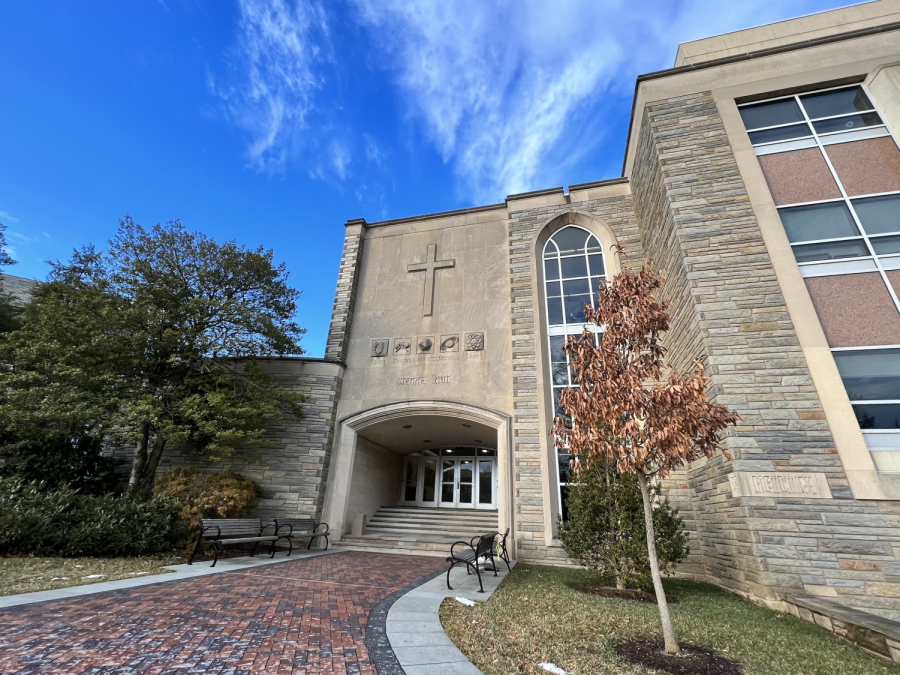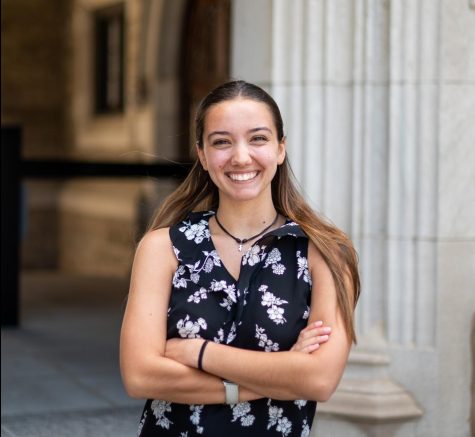Hidden on the tiny fourth floor of Mendel Hall is a whole new world of discoveries, including two observatories and impressive technology. Many Villanova students are not even aware there is a fourth floor to the science building, much less of what it has to offer.
Last Tuesday, the Astrology Department hosted a moon and stars-watching event, open to anyone in the Villanova community. That night was chosen specifically because of a partial eclipse happening to the harvest moon. While it was unfortunately a cloudy night, the facilities themselves were just as impressive on their own.
In the main observatory, there is a reflector telescope that uses multiple mirrors to present a very clear image of the night sky. When the light comes in the front point it reflects off a curved mirror and heads towards a mirror in the front before reflecting back to a mirror with a 14-centimeter diameter, which is the image that is seen when looking into the viewpoint.
To access the stunning observatory, one does not need to be an astrology major or even be a Villanova student. The observatory is open to the public Monday through Thursday from 8 p.m. to 10 p.m. on clear evenings. During those hours, it is completely run by students who can direct people to the telescopes and answer any questions they may have. Once the clock goes back to standard time, the observatory will be open from 7 p.m. to 9 p.m.
“VU astronomers wish to share our love for, and dedication to, our discipline with our community,” Dr. Frank Maloney, associate professor of astronomy and astrophysics, said.
Astrology majors will direct the telescope to any and all the beautiful and interesting things in the sky from that night, including the moon, planets, stars and stellar nurseries. This service is a great opportunity for them to show off their skills and knowledge while also being a very informative and fun activity for non-astrology students.
The Astronomy Department also recommends that if students are interested in astronomy, that they should take some of many astronomy classes offered that are specifically designed for those not majoring in astronomy or astrophysics. Courses provided in the spring are “The Birth and Death of Stars,” “How Old is the Universe?” and “A Cosmic Connection.” All of the classes are very interesting and highly recommended for those who want to learn more about astronomy.
Maloney believes that humans have a deep connection with the stars.
“The fact that our bodies are composed of atomic elements forged in earlier generations of stars,” he said. “We are literally star-stuff. The universe is illuminated by stars. One star, our sun, is the engine of life on Earth, the fact that there are planets similar to Earth, and they orbit stars like the sun. Are they inhabited by sentient beings? In philosophical and theological terms, what are our connections to the Creator?”
Most people are not astrophysicists or astronomers, but many have a way that they enjoy our universe through the night sky.
“In the U.S., there are millions of amateur astronomers, whose activities range from watching the skies with just their eyes to photographing the spectacular beauty,” Maloney said.
There are so many different ways someone could experience and learn about astronomy on their own level and pace.
The Astronomy Department at Villanova offers a wide range of resources for students at all levels and has great opportunities to get involved. Despite being tucked away on the seemingly secret fourth floor, there is a whole new world to be discovered. Villanova students should definitely take advantage of the observatory and other available services offered by the department, even if they don’t have any prior experience in the astronomical realm.








